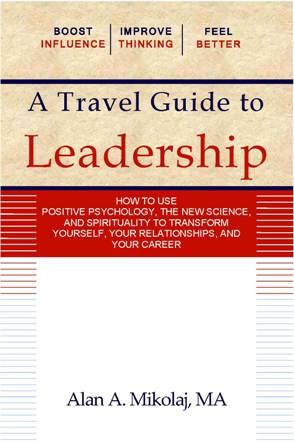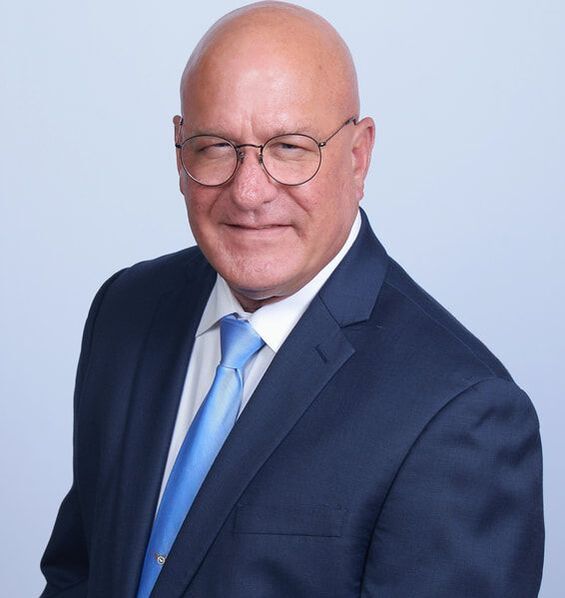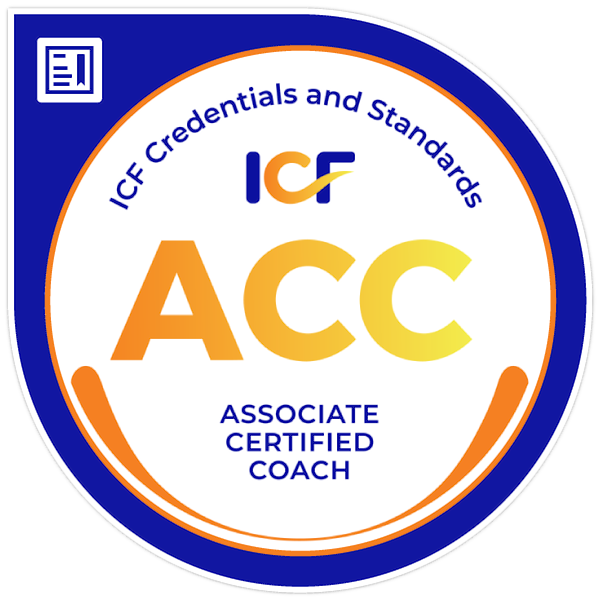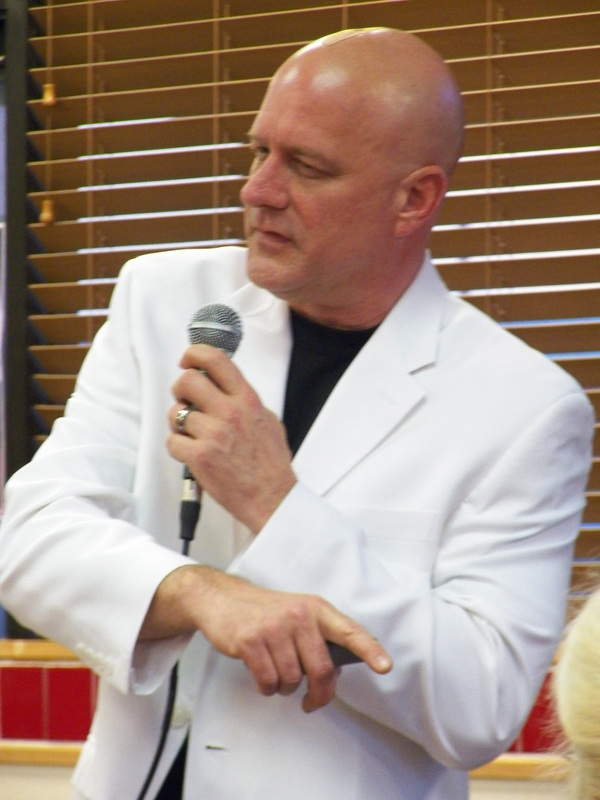|
Inspiration and lessons for your leadership journey! “We have to choose love. We have to choose to be patient, kind, humble and giving.” I told the following true story in A Travel Guide to Leadership: “For example, my wife is Filipina. Although she speaks fluent English, her original, native language is Tagalog. Generally, this isn’t a problem for us. But sometimes, there can be a bit of a communication gap. Between any stimulus and your response there is a gap – sometimes a small gap – but a gap, nonetheless. When you can catch yourself for just a brief moment in that gap, you can do what Victoria Osteen (wife of Joel Osteen) tells us in our opening quote – choose love. I’m not saying it’s easy but the more you practice getting in the gap and choosing love, the easier it becomes. Sure, you’ll slip-up sometimes, just as I did above. Ten things you can try to help you increase your awareness of the gap and choose love: Empathic listening
This Week's Affirmations (Repeat these quietly to yourself multiple times throughout the day.) I am loving and self-aware. I am growing and learning. I am aware of the gap between stimulus and response. I am a loving leader! If you like this week's blog, I encourage you to share it with your family, friends, and colleagues and join me on my journey to empower and inspire millions of people around the globe. Together we can spread words of Encouragement, Inspiration, Empowerment, and Loving Leadership... and wouldn't you agree our world could use a little more "Positivity" these days? Together we can make a difference... Have an amazing journey today! Alan
0 Comments
Inspiration and lessons for your leadership journey! This Week's Affirmations (Repeat these quietly to yourself multiple times throughout the day.) I am blessed with this life for only a short while! I am aware of my passion and purpose! I am focused on the most valuable things in life today! “Today, I interviewed a woman who is terminally ill. We are all dying – at least in this bodily form. That awareness is one of the things that makes us uniquely human. My experiences in the healthcare industry, especially emergency services, brought that fact clearly in front of me many times at a very young age. I’ve seen the dead and dying in nearly every age bracket. Taking some time to reflect on your own mortality can help you break free of your trivial worries and focus on what truly matters to you. Many great spiritualists and transformational leaders recommend doing this from time to time. Jesus of Nazareth said, “You also must be ready, for the Son of Man is coming at an hour and a moment when you do not anticipate it.” The first meditation in Wellsprings: A Book of Spiritual Exercises by the famous spiritualist, Anthony de Mello, opens with a meditation called ‘The Conclusion.’ It begins with, “I imagine that today I am to die.” From there the meditation leads you to write a testament to your family and friend about all of the things you have liked, loved, cherished, and learned throughout your life. The last step is to choose an ending to your testament, like a poem, prayer, writing, or picture. A popular adage says, “Live today as if it were the last day of your life. One day soon it will be.” This type of guidance, my life experiences, and personal contemplations inspired me to write of this in A Travel Guide to Leadership: “Are you courageous enough to contemplate, for even just a few moments, your last day on earth? How will you be remembered? What will you have accomplished? What will you leave behind? What is your love? Your calling? Will you leave rejoicing with the knowledge that you have heard and responded to your calling with joy and love? Or, will you leave with regret and fear?” The purpose of this type of reflection is not to cause fear or anxiety, but to inspire a keener focus on what matters most to you – to identify your mission on this journey and to act on it. This is even more critical when we contemplate our leadership roles. When you wake up each day pretending or denying your own and others’ mortality, you risk trivializing the most important and valuable parts of life and leadership. So that you may more truly live your life to its fullest today and lead with passion and purpose, contemplate for a short while on the fact that, yes, you are dying. Have an amazing journey today! Alan Inspiration and lessons for your leadership journey! “You are loved and cherished. You have nothing to fear. There is nothing you can do wrong.” Dr. Eben Alexander is a renowned neuroscientist and academic neurosurgeon. He has hundreds of scientific publications and speeches to his credit. He spent fifteen years as a professor and clinician at Harvard Medical School and has had multiple internships and residencies, research fellowships, academic and hospital appointments, and has a CV longer than my arm. Like many scientists, he bordered on atheism/agnosticism, despite being raised in the Bible Belt… until he had an NDE experience. That’s NDE for Near Death Experience. He was brain dead for the better part of a week, and yet, experienced something profound and telling despite the medically documented fact that the parts of his brain that control thought and emotion were completely shut down. The doctors (his friends and colleagues) and his family were about to ‘pull the plug’ when he miraculously recovered. You can read his amazing story in a spellbinding bestseller (#1 New York Times Best Seller for the last 14 weeks), Proof of Heaven. I received it as a Christmas gift from my mother and began reading it somewhat reluctantly and out of gratefulness to and respect for my Mom. After reading only a couple of pages, I couldn’t put it down. I read it in less than a week and didn’t pick up any of the other eight books sitting on my shelf waiting for me to read. Dr. Alexander walked away from his NDE with the profound conclusion in our opening quote. Oh, what an achievement it would be to live my life knowing and feeling that I am unconditionally and infinitely loved and cherished, that I have nothing to fear, and that I could do no wrong. Wow! I’m not sure I’ve ever been 100% immersed in such a feeling and knowing – and when I sometimes feel I might be getting close; it doesn’t seem to last very long. Beyond my personal experience, how can I, in my leadership roles, bestow and live that message with those I lead? This week we celebrate love and St. Valentine’s Day. While flowers, cards, gifts, and elegant dinners are all good, I want you to take some time to reflect on the deeper aspects of love that I spoke of in A Travel Guide to Leadership: “The most powerful relationships we have in our lives are with those people who lead us and with those whom we lead – in which leadership is a central element of the relationship. Parent-child, friend-friend, girlfriend-boyfriend, spouse-spouse, teacher-student, coach-player, boss-employee, – it is relationships like these that have the most influence in our lives and where the lessons of love and life are cultivated. Go ahead and re-read part or all of Chapter 5, A Path of Love. You’ll be glad you did. Walk through this week reminding others and yourself of the powerful messages “I am loved” and “I am loving.” Have an amazing journey today! Alan This Week's Affirmations (Repeat these quietly to yourself multiple times throughout the day.) I am loved and cherished! I have nothing to fear! There is nothing I can do wrong! I am a loving leader! Inspiration and lessons for your leadership journey! “Happiness and success in life do not depend on our circumstances, but on ourselves.” Texting. Email. Meetings. Phone calls. Conference calls. Webinars. To-Do List. LinkedIn. Facebook. Twitter. Are you constantly going from one thing to the next and/or find yourself trying to multitask? Then do yourself and those you lead a favor – take a break! Researchers from the University of Southern California and MIT report on some of the latest findings in neuroscience, psychology, and education that have profound impact for leaders, educators, project coordinators, and development specialists. Taking time for what they call ‘strategic abstraction’ – a break – can positively affect your memory and cognitive abilities, your ability to imagine the future, your moral judgment, and dealing with how social situations impact others around you – all key components of effective leadership. They discovered that we have two alternating systems in the functional architecture of our brains. One system is responsible for our active involvement in tasks, the environment and stimuli around us, and evaluating how important all that is to us. They call it the “looking out” system. The other system is more reflective and is considered the ‘default mode’ of the brain. This system is in use when we allow our minds to wander in a dynamic stream of loose associations, memories, hypothetical ‘what-ifs,’ future plans, and social imaginings or during contemplation, and meditation. It’s also what we call daydreaming. Functional MRIs reveal our minds are actually quite active during periods of so-called ‘rest.’ They named this system the “looking in” system. I spoke of taking time-outs and setting a daily contemplation time in A Travel Guide to Leadership: “Taking time out to re-center and re-focus is a crucial part of effective leadership. As I mentioned before, I contemplate my guiding principles and values every morning and every night on a continual and routine basis. If I get stressed or busy, I take time-outs to reconnect to purpose, mission, and vision and guiding principles and values. Only then am I ready to focus on the goals and objectives that manifest them into reality.” The two systems complement each other. The better you are at strategic abstraction – the “looking in” system – the better you are at focusing on tasks and the environment – the “looking out” system. People with higher functioning “looking in” systems tend to have higher IQs, better reading and memory abilities, and higher performance on attention-demanding cognitive tasks. However, overuse of the “looking out” system has detrimental effects. There is evidence that overuse could predispose us toward focusing on the concrete, physical, and immediate aspects of situations and self, with less inclination toward considering the abstract, longer term, moral, and emotional implications of ours and others’ actions. So as this busy week unfolds, remember to take time for a strategic abstraction from time to time. It is during moments like these that we often discover the solution to problems, have creative insights, and organize possibilities into better plans. It’s okay to take a break from the mayhem from time to time – it’s good for you and those you lead. So take some strategic abstraction time today and remember that rest is not idleness. Have an amazing journey today! Alan This Week's Affirmations (Repeat these quietly to yourself multiple times throughout the day.) I start my day with “looking in” time. It’s okay to take a break and recharge. I make the time to take strategic breaks throughout my day. My strategic breaks help me to be better at what I do. |
Alan Mikolaj
Alan Mikolaj is a a professional, experienced, positive, and passionate speaker, leadership and organizational development consultant, change agent, author, and coach. He holds his Master of Arts degree in Clinical Psychology from Sam Houston State University. He is a certified graduate coach from Coaching Out of the Box and holds his ACC and membership with the International Coaching Federation (ICF). Free Discovery Conversation!
Impactful change starts with a conversation! Schedule your free, one-hour session by clicking here: Discovery Conversation with Alan
Or call or email: Contact Page In his third book, A Travel Guide to Leadership, Alan offers you simple, fundamental, and powerful lessons that have the power to transform you, your relationships, and your career.

Blog Archives
July 2024

Linked2Leadership
Ranked #1 Business Blog! |
|
CONTACT
TEL: 346-291-0216 EMAIL: [email protected] SCHEDULE TIME WITH ALAN Free Discovery Conversation with Alan |







